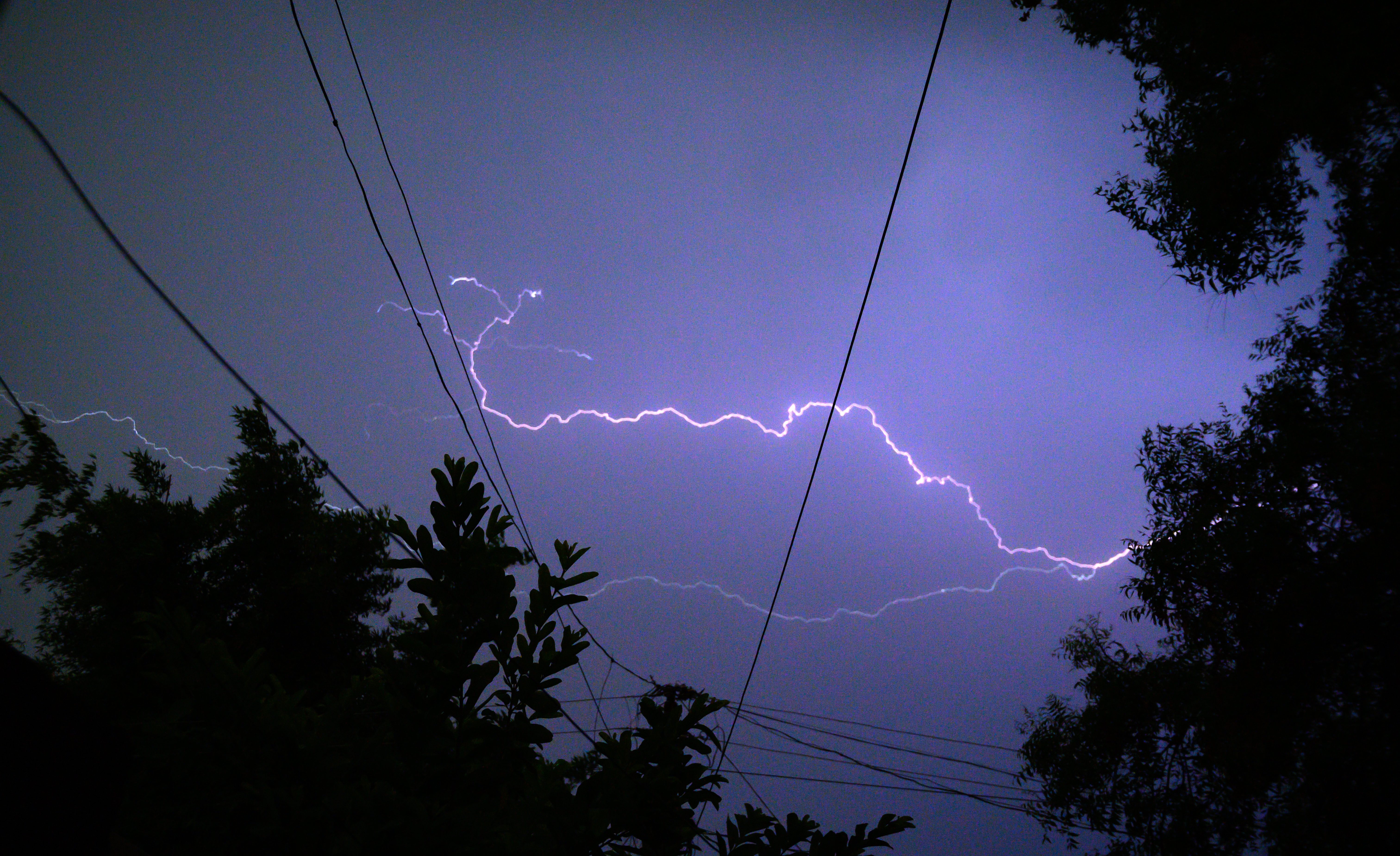
Experts are cautioning of a rise of COVID, flu and other respiratory viruses as the colder months -- and holidays -- approach.
Here's what you need to know about the coronavirus pandemic across Illinois today.
How to Manage COVID Comfort Levels As Holidays Approach
Now more than ever, people's attitudes toward COVID comfort and risk are changing, experts say. That means it's harder than ever to find two people with the same approach toward the virus, and it's making our relationships harder to manage.
The reason: Many people are now more focused on their own risk than the risk they pose to others, says Virginia Tech epidemiologist Lisa Lee. Someone up-to-date on their COVID vaccines might attend a large party these days, without considering the risk of potentially spreading the virus to high-risk loved ones.
That's a near-complete reversal from the pandemic's beginning, when "we were all afraid and much more willing to do things to protect each other against the new disease," Lee tells CNBC Make It.
Read more here.
Local
As Cases Creep Upward, Here Are Five Common Questions About COVID, Vaccines and More
Coronavirus cases are slowly on the rise in Illinois and across the United States, and with that residents are asking plenty of questions about the illness.
Feeling out of the loop? We'll catch you up on the Chicago news you need to know. Sign up for the weekly Chicago Catch-Up newsletter here.
Scientists and officials have anticipated increases in cases because of new variants, which have shown some resistance to certain treatments, and because of colder weather pushing more people to spend time indoors.
Whatever the case, there are some commonly-asked questions about COVID, and we're here to provide some answers from experts and scientists.
Read more here.
As New COVID Variants Emerge at a Faster Pace, Here's What You Need to Know
During a coronavirus update Friday, Chicago's top doctor said that new COVID variants are emerging "more quickly right now," potentially marking a turning point in the pandemic as it enters its third winter.
While none of the recent rapidly-rising subvariants have reached the threshold of "variant of concern," they are being closely monitored as colder weather shifts more activities indoors.
According to CDPH Commissioner Dr. Allison Arwady, all of the rising variants remain under the omicron umbrella.
Read more here.
Illinois Seeing ‘Uptick' in COVID Cases, Health Department Says
Illinois saw an "uptick" in COVID cases within the last week, the state's health department said Friday.
With the number of counties under a "high" community level for the virus rising from three to five this week, and another 33 at a "medium" level, per guidelines set by the Centers for Disease Control and Prevention, the Illinois Department of Public Health urged residents to get new bivalent booster shots alongside flu vaccines before the holiday season. Residents in counties under a high alert level are urged to wear masks in public spaces.
Read more here.
Masks Recommended in 5 Illinois Counties With ‘High' COVID Community Level
Masks are advised in five Illinois counties that have returned to "high" COVID community level status following an increase in weekly metrics, according to the latest update from the Centers for Disease Control and Prevention.
Residents in the five counties are advised to take precautions against the virus, including wearing masks in indoor spaces and staying away from large gatherings if they are immunocompromised or have other common risk factors for severe illness if they contract COVID.
Read more here.
New COVID Variants Emerging ‘More Quickly' Now. Here's What That Signals
New COVID variants are emerging "more quickly right now," Chicago's top doctor said during a coronavirus update Friday, and that could signal a shift heading into colder months.
Read more here.
Chicago's Top Doctor Gives COVID Update Ahead of Halloween, Holiday Season
Chicago's top doctor delivered a COVID-19 update Friday ahead of Halloween and the upcoming holiday season.
Chicago Department of Public Health Commissioner Dr. Allison Arwady and other city health officials held a press conference to discuss bivalent booster uptake, protections for the winter and holiday seasons and more.
‘Nightmare' and ‘Scrabble': How Worried Should You Be About New COVID Variants?
As new COVID variants emerge, such as XBB and BQ.1 and BQ.1.1, they're also generating new names like the "nightmare variant" or "scrabble variants." But what does that mean and how worried should you actually be?
While the BA.5 subvariant remains the dominant strain in the United States this week, several other new forms of the virus are gaining ground, and physicians warn that some treatments against the illness may not be effective against them.
Read more here.
No, There Isn't a Mask Mandate in Illinois. But They are Recommended in These 3 Counties
Although COVID cases across the Chicago area and the state have recently remained relatively low, local doctors are predicting a surge as the colder weather draws near.
"In terms of the COVID-19 community transmission, the rates are currently low," Dr. Lamar Hasbrouck, chief operating officer at the Cook County Department of Public Health said during an update Tuesday. "However, we are expecting a likely surge in the winter. I can't say with any real precision, but we are expecting a surge."
And while community COVID levels for the majority of the state are not currently showing concerning numbers, three counties in Illinois have recently reported a "high" level of community transmission, perhaps pointing to a sign of what's to come.
Read more here.
Illinois Health Officials Offer Tips to Stay Safe This Halloween
With Halloween quickly approaching, Illinois health officials are offering tips to stay safe this year, both from the spread of viruses and from injuries that are more common during spooky season.
Read their guidelines here.
DuPage County to Permanently Close COVID-19 Testing Site
The DuPage County Health Department announced that it will close its COVID-19 testing facility at the Dupage County Fairgrounds later this week.
According to a press release, the department will shut the site down on Friday.
The department cites the widespread availability of other testing sites and at-home COVID tests, and says residents can find information on additional sites at this link.
More than 60,000 tests were conducted at the fairgrounds.
BQ.1, BQ.1.1 Variants, Resistant to Some COVID Treatments, Continue to Gain Ground in U.S.
The BA.5 subvariant of COVID-19 remains the dominant strain in the United States this week, but several other new forms of the virus are gaining ground, and physicians warn that some treatments against the illness may not be effective against them.
According to the latest data from the Centers for Disease Control and Prevention, BA.5 is making up approximately 62.2% of COVID cases in the U.S. That subvariant has been the dominant strain of COVID since early July, but it’s rapidly declining as other strains take hold.
Read more here.
Chicago-Area Doctors Predict ‘Explosion' of Flu, RSV and COVID This Fall and Winter
As temperatures drop and restrictions like vaccination and mask mandates continue to ease, Chicago-area doctors are bracing for what they're predicting will be a "potentially scary cold and flu season."
One of the main reasons, health experts say, is a lag in eligible people opting to receive the flu shot and COVID bivalent booster.
Read more here.
I Have COVID, Now What Should I Do? Here's the Latest Guidance
For those who contract COVID for the first time or who test positive following updated guidelines from the Centers for Disease Control and Prevention this summer, there may be some uncertainty about what to do next.
If you had COVID previously and followed the proper guidance, you'll need to take note as the current recommendations aren't the same as before. The CDC last changed its quarantine and isolation guidance in August.
Read more here.
Most Common COVID Symptoms Have Changed, Study Says. Here's Why and What They Are
While those who contract COVID-19 may come down with one of more than 20 symptoms, that isn't the case for everyone. Some people who test positive can develop multiple symptoms while others may not even experience any.
And if you do come down with COVID after having it another time before, the symptoms you have - and severity of them - may be drastically different than the other time you were infected. As revealed by a recent study, there may be a reason for that.
Read more here.
How Long Can You Continue to Test Positive for COVID-19?
As concerns over COVID-19 rise heading into the winter months, many are wondering how long they can expect to test positive in the event of contracting COVID.
With the more recent periods, the incubation period, the time between when you're infected to when symptoms appear, has dropped to three days, Dr. Allison Arwady, commissioner of the Chicago Department of Public Health, has said. Most elements with both the aforementioned strains have moved faster compared to others, the doctor noted.
Read more here.
Loss of Smell May Not Happen Right Away. What We Know About the COVID Symptom
While it seemed that loss of smell may have faded from the most common symptoms associated with the virus, health experts say it's still being seen in many infections — and for some, it may not hit right away.
Chicago's top doctor said the city continues to see a "wide range of symptoms," including loss of taste and smell.
Read more here.



